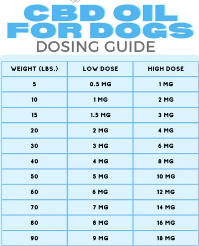‘Too much of a good thing can be bad.’
This age-old adage holds true when it comes to administering CBD oil dosage for dogs. As pet owners, we want the best for our furry companions and are keen to explore all possible avenues to improve their well-being. The growing popularity of CBD oil has led many dog owners to consider its potential benefits in alleviating various health issues in their pets.
However, determining the correct dosage is crucial to ensure maximum effectiveness and safety.
In this article, we will delve into the topic of CBD oil dosage for dogs, examining the factors that must be considered when determining the right amount for your canine companion. We will discuss the importance of starting with a low dosage and gradually increasing it as you monitor your dog’s response. Additionally, we will explore how to find the optimal dosage for your dog’s specific needs and highlight key considerations regarding quality and safety.
By understanding these essential factors, you can make informed decisions about administering CBD oil to support your furry friend’s overall health and happiness.
So let us embark on this journey together, empowering ourselves with knowledge while ensuring our beloved pets receive appropriate care and attention they deserve.
Understanding the Potential Benefits of CBD Oil for Dogs
The potential benefits of CBD oil for dogs are worth exploring as it may offer promising therapeutic effects without the psychoactive properties associated with THC.
CBD, or cannabidiol, is a compound derived from the hemp plant that has been found to interact with the endocannabinoid system in both humans and animals.
Research suggests that CBD oil may help manage pain, reduce inflammation, alleviate anxiety, and improve overall well-being in dogs.
Additionally, CBD oil has shown potential in treating seizures and epilepsy in dogs.
While more research is needed to fully understand the long-term effects of CBD oil on dogs, current evidence suggests that it is generally well-tolerated with minimal side effects.
However, it is important to note that individual responses may vary and consulting with a veterinarian before initiating CBD treatment for your dog is advisable to ensure safety and efficacy.
Factors to Consider When Determining the Right Dosage for Your Dog
When determining the appropriate amount of CBD oil for canine consumption, it is essential to take into account various factors that may influence the dosage.
These factors include the size and weight of the dog, as larger dogs may require higher doses than smaller ones.
Additionally, the severity of the condition being treated should be considered, as more severe conditions may require higher doses.
It is also important to monitor the progress of your dog while using CBD oil and adjust the dosage accordingly.
Lastly, potential side effects should be taken into consideration when determining the right dosage for your dog. While CBD oil is generally well-tolerated by dogs, some possible side effects include drowsiness, dry mouth, and changes in appetite.
By considering these factors and monitoring your dog’s progress closely, you can determine an appropriate and effective dosage of CBD oil for your furry friend.
Importance of Starting with a Low Dosage
To ensure safe and gradual introduction of CBD for dogs, it is crucial to begin with a low initial amount, allowing for careful observation of any potential effects.
Gradually increasing the dosage can help in finding the optimal level that provides maximum benefits without causing any adverse reactions.
While common guidelines suggest starting with a dose of 0.2 mg per kilogram of body weight, every dog is unique and may respond differently to CBD oil.
It is important to closely monitor the dog’s behavior, appetite, energy levels, and any changes in their condition when administering CBD oil.
By starting with a low dosage and gradually increasing it based on the dog’s response, pet owners can better understand the appropriate dosage that works best for their furry companion.
Gradually Increasing Dosage to Monitor Your Dog’s Response
Gradual increases in the amount administered can provide valuable insights into how your canine companion responds to CBD, allowing for a more informed and tailored approach to their well-being.
When starting with a low dosage of CBD oil for dogs, it is important to gradually increase the amount to monitor your dog’s reaction. This gradual dosage increase allows you to observe any changes in behavior or symptoms that may occur as a result of the CBD oil.
By closely monitoring your dog’s response, you can determine the optimal dosage that provides the desired effects without any adverse reactions. This approach ensures that you are providing your furry friend with the most effective and safe dose of CBD oil, customized to their individual needs.
Additionally, gradually increasing the dosage allows for better control over potential side effects and minimizes the risk of overmedication.
It is essential to remember that every dog is unique, and their response to CBD oil may vary. Therefore, taking this gradual and monitored approach will enable you to make informed decisions regarding your dog’s well-being while using CBD oil as a supplement.
Finding the Optimal Dosage for Your Dog’s Specific Needs
Discovering the optimal amount to administer for your canine companion’s specific needs involves careful observation and adjustment. When finding the right dosage of CBD oil for your dog, it is important to start with a low dose and gradually increase it over time.
This allows you to monitor your dog’s response and determine the effectiveness of the CBD oil. Keep track of any changes in behavior, pain levels, or other symptoms that your dog may be experiencing. It is also helpful to consult with a veterinarian who has experience with CBD oil for dogs, as they can provide guidance on appropriate dosages based on your dog’s size, breed, and individual needs.
Additionally, measuring the effectiveness of CBD oil can be done by considering factors such as improvements in mobility, reduction in anxiety or seizures, and overall improvement in quality of life. By carefully observing your dog’s response to different doses of CBD oil and making necessary adjustments, you can find the optimal dosage that meets your dog’s specific needs.
Common Dosage Guidelines for Different Sizes of Dogs
Determining the appropriate amount of CBD oil for dogs of different sizes can be achieved by following common dosage guidelines based on their specific weight categories.
It is important to note that these guidelines are not set in stone and may vary depending on individual circumstances.
For smaller dogs weighing less than 20 pounds, a recommended starting dosage would be around 5-10mg of CBD oil per day.
Medium-sized dogs weighing between 20-50 pounds could start with a dosage of 10-20mg per day.
Larger dogs weighing over 50 pounds may require higher dosages, ranging from 20-30mg per day.
However, it is crucial to consult with a veterinarian before administering any CBD oil to your dog, as they can provide personalized recommendations based on your pet’s specific needs and potential side effects that may occur.
Additionally, monitoring your dog’s response to the initial dosage and making adjustments accordingly is also essential in finding the optimal dose for your furry friend.
Adjusting Dosage Based on Your Dog’s Response and Condition
Evaluating the efficacy and condition-specific response of canines to different levels of CBD administration allows for tailored adjustments in dosage. This is important because every dog may respond differently to CBD oil, and it is crucial to find the right dosage that suits their individual needs.
Adjusting the dosage frequency based on your dog’s response and condition is necessary to ensure optimal results. By closely monitoring your dog’s behavior, you can determine if the current dosage is effective or if adjustments need to be made. It is recommended to start with a low dosage and gradually increase it until you find the ideal level for your dog.
Additionally, it is essential to be aware of any potential side effects that may occur when administering CBD oil to your canine companion. These side effects could include drowsiness, dry mouth, or changes in appetite. Monitoring your dog’s reaction allows for timely adjustments in both dosage and frequency, ensuring their comfort and well-being while taking CBD oil.
Read Also: CBD for Dog Seizures: A Comprehensive Guide
Monitoring for Any Potential Adverse Effects
When adjusting the dosage of CBD oil for dogs based on their response and condition, it is crucial to monitor for any potential adverse effects.
While CBD oil is generally considered safe for dogs, there have been reports of side effects such as drowsiness, dry mouth, and lowered blood pressure.
It is essential to closely observe your dog after administering CBD oil and consult with a veterinarian if any concerning symptoms arise.
Additionally, considering the long-term effects of CBD oil is important. Although research in this area is still limited, some studies suggest that high doses of CBD may potentially interact with certain medications or affect liver function in dogs.
Therefore, regular monitoring and consultation with a veterinary professional are necessary to ensure the well-being and safety of your furry companion when using CBD oil as a supplement.
Using CBD Oil as a Supplement to Other Veterinary Treatments
Incorporating CBD oil as a supplementary treatment alongside traditional veterinary approaches can potentially enhance the overall well-being and health of our beloved four-legged companions.
CBD oil has been found to have various therapeutic properties that may provide additional benefits when used in conjunction with other treatments. Some potential benefits include its anti-inflammatory properties, which can help reduce pain and inflammation associated with certain conditions such as arthritis or allergies.
Additionally, CBD oil may have anxiolytic effects, helping to alleviate anxiety and stress in dogs. Furthermore, studies suggest that CBD oil may have anticonvulsant properties, making it a potential option for dogs with epilepsy or other seizure disorders.
However, it is important to note that while there is anecdotal evidence supporting the use of CBD oil in dogs, more research is needed to fully understand its supplement effectiveness and determine appropriate dosages. As with any alternative treatments, it is always advisable to consult with a veterinarian before incorporating CBD oil into your pet’s healthcare routine.
Ensuring the Quality and Safety of CBD Oil for Your Dog
Ensuring the quality and safety of CBD oil for our canine companions is essential in order to provide them with the best possible care and protect them from potential harmful effects.
When considering using CBD oil for dogs, it is important to be aware of potential side effects that may occur. While CBD oil is generally considered safe for dogs, some animals may experience mild side effects such as drowsiness, dry mouth, or an upset stomach.
It is also crucial to choose a reputable brand when purchasing CBD oil for your dog. Look for companies that provide third-party lab testing results to ensure the product’s potency and purity.
Additionally, consult with your veterinarian who can recommend trusted brands and appropriate dosage based on your dog’s specific needs. By taking these precautions, you can confidently incorporate CBD oil into your dog’s healthcare regimen while minimizing any potential risks.
Different Forms of CBD Oil and their Administration Methods
Different forms of CBD oil, such as tinctures, capsules, and treats, offer various options for administering this beneficial compound to our canine companions. These different forms allow pet owners to choose the most suitable method based on their dog’s preferences and needs.
Tinctures are liquid extracts that can be easily mixed with food or water, making them a convenient option for dogs who may not readily consume other forms of CBD oil. Capsules provide a precise dosage and can be easily hidden in treats or food, ensuring accurate administration. Treats infused with CBD oil offer a tasty way to give the compound to dogs, making it easier for pet owners to incorporate into their daily routine.
It is important for pet owners to consult with their veterinarian to determine the most appropriate form and administration method based on their dog’s specific condition and individual needs.
Recognizing the Signs of Improvement in Your Dog’s Health
One way to assess the effectiveness of a dog’s treatment is by observing noticeable improvements in their overall health and well-being. These improvements can include increased energy levels, improved coat condition, and reduced inflammation. These improvement indicators can serve as valuable tools for tracking progress and determining whether the chosen form of CBD oil is having a positive impact on the dog’s health.
For example, a case study involving a senior dog with arthritis demonstrated significant improvement in mobility and decreased pain after receiving the appropriate form of CBD oil for several weeks. This evidence-based study highlights how CBD oil can contribute to enhancing a dog’s quality of life by providing relief from pain and improving their physical capabilities.
By monitoring these signs of improvement closely, pet owners can make informed decisions regarding dosage adjustments or alternative forms of CBD oil if necessary.
The Importance of Consistency in Administering CBD Oil Dosage
Consistency in administering the recommended dosage of CBD oil is crucial for optimal results and effectiveness in promoting overall health and well-being in canines.
It is important to maintain a consistent schedule when giving your dog CBD oil, as this allows for better absorption and utilization of the compound by their body.
Additionally, consistency ensures that your dog receives a steady and appropriate amount of CBD oil, which can help to minimize potential side effects.
While CBD oil is generally considered safe for dogs, there are some possible side effects that may occur if the dosage is not consistent or if it is administered in excessive amounts.
These side effects may include drowsiness, dry mouth, lowered blood pressure, or an upset stomach.
By following a consistent administration routine and monitoring your dog’s response to the CBD oil, you can help ensure that they receive the maximum benefits while minimizing any potential adverse effects.
Frequently Asked Questions
Can CBD oil be used for all types of dogs, regardless of their size or breed?
CBD oil can be used for all types of dogs, regardless of their size or breed. It offers various benefits such as reducing anxiety, relieving pain and inflammation, improving appetite and digestion, and promoting overall well-being in dogs.
Are there any potential side effects or risks associated with giving CBD oil to dogs?
While cbd oil has shown potential benefits for dogs, it is important to consider the potential side effects and risks. These may include drowsiness, dry mouth, lowered blood pressure, and possible interactions with other medications.
Can CBD oil interact with other medications or treatments that my dog is currently receiving?
CBD oil has the potential to interact with other medications or treatments that dogs are receiving. This can pose risks and may affect the efficacy of both CBD oil and the other medications. Further research is needed to fully understand these interactions.
How long does it usually take to see the effects of CBD oil in dogs?
The effects of CBD oil in dogs can vary, but typically it takes a few weeks to see noticeable results. CBD oil for pets has shown potential benefits for anxiety, pain relief, seizures, arthritis, cancer, allergies, and inflammation.
Is it necessary to consult with a veterinarian before starting my dog on CBD oil?
Veterinarian consultation is crucial before starting a dog on CBD oil due to potential risks and variations in individual reactions. Consultation ensures proper dosage, monitoring of the dog’s reaction, and consideration of any underlying health conditions.
Conclusion
In conclusion, CBD oil has shown potential benefits for dogs in managing various health conditions.
When determining the right dosage for your dog, factors such as weight, age, and the specific health issue should be taken into consideration. It is important to start with a low dosage and gradually increase it while monitoring your dog’s response.
Finding the optimal dosage for your dog’s specific needs may require some trial and error. Ensuring the quality and safety of the CBD oil you choose is crucial, as not all products on the market may be reliable.
Different forms of CBD oil are available, including tinctures, treats, and capsules, each with their own administration methods.
Recognizing signs of improvement in your dog’s health can help gauge whether the chosen dosage is effective. Just like finding the right balance in life, consistency in administering CBD oil dosage is key to achieving desired results.
Overall, CBD oil can potentially provide relief for dogs dealing with various ailments. By carefully considering factors when determining dosages and ensuring quality products are used consistently over time, pet owners can offer their furry companions a better quality of life.
Just as a gardener tends to their plants with care and precision to yield beautiful blooms, pet owners who administer CBD oil attentively can nurture their dogs’ well-being.





 Cbd Oil For Dogs Near Me
Cbd Oil For Dogs Near Me